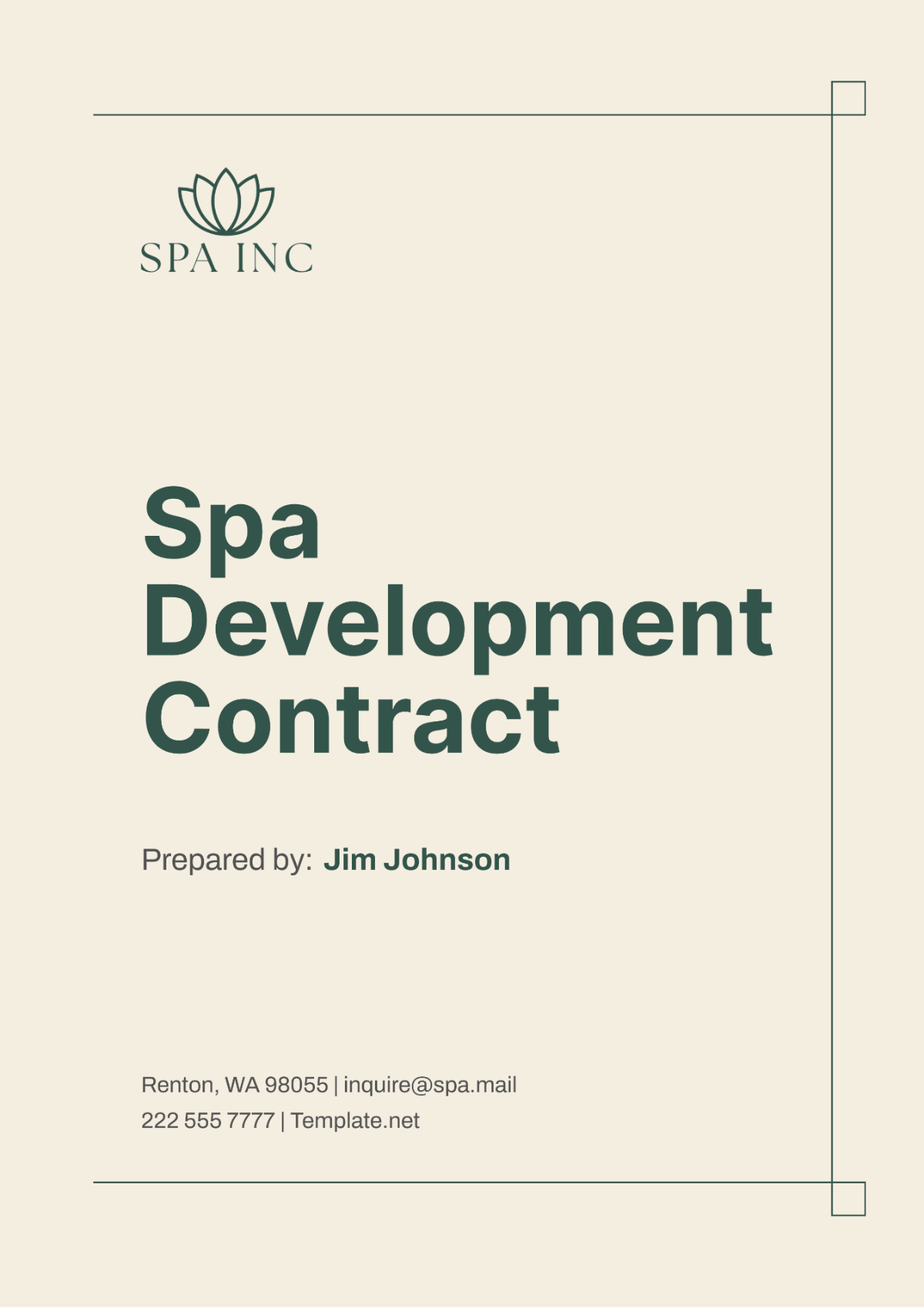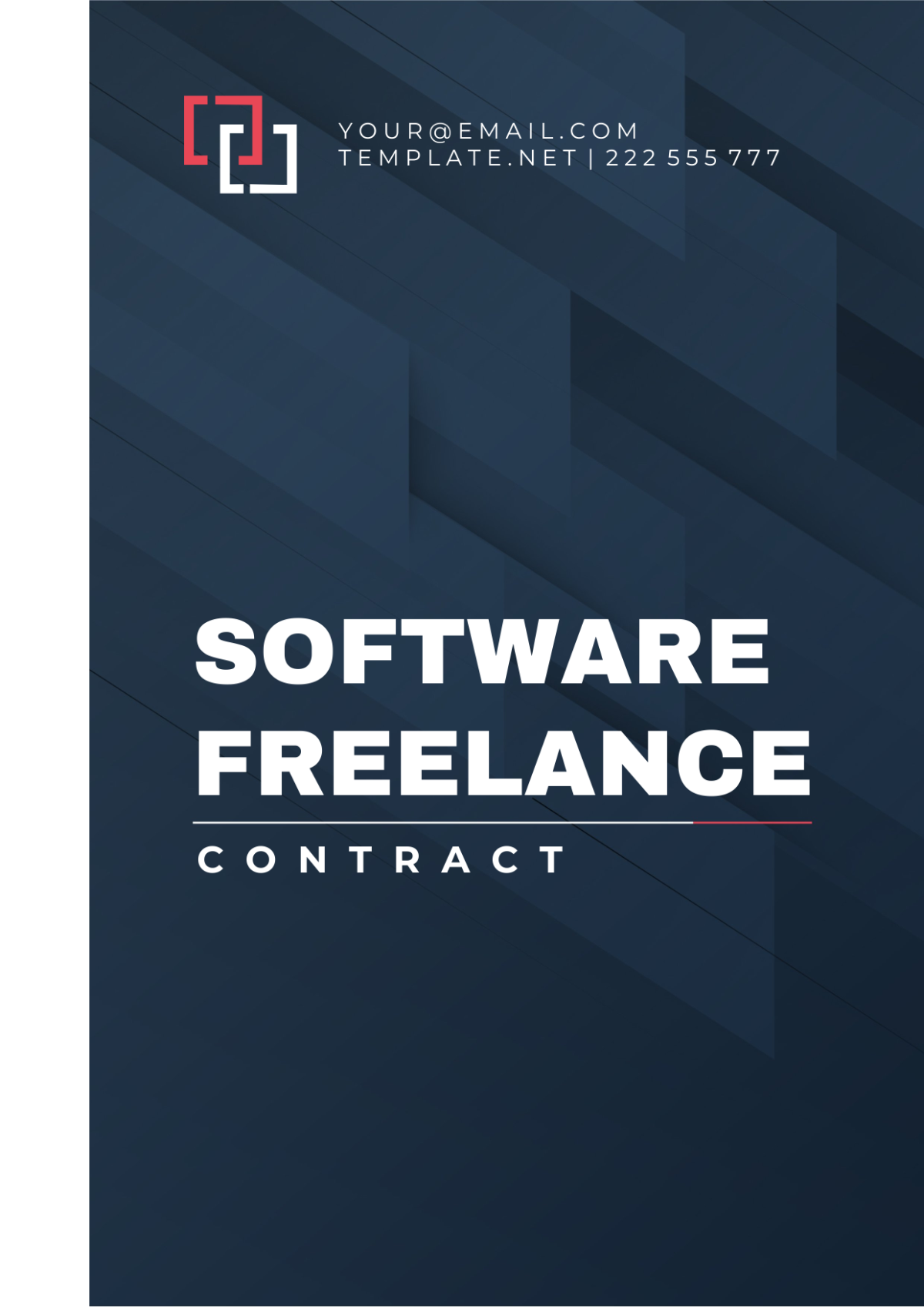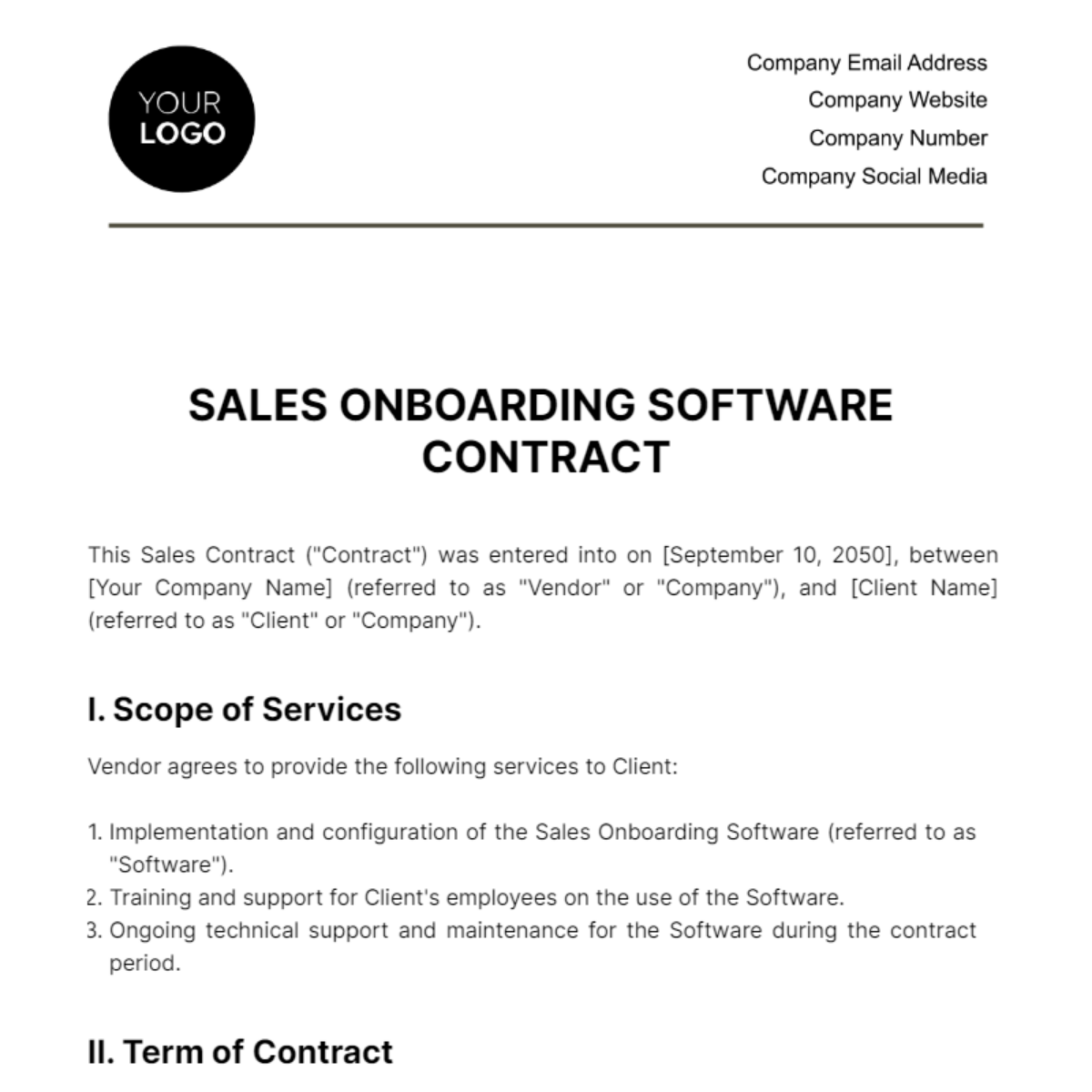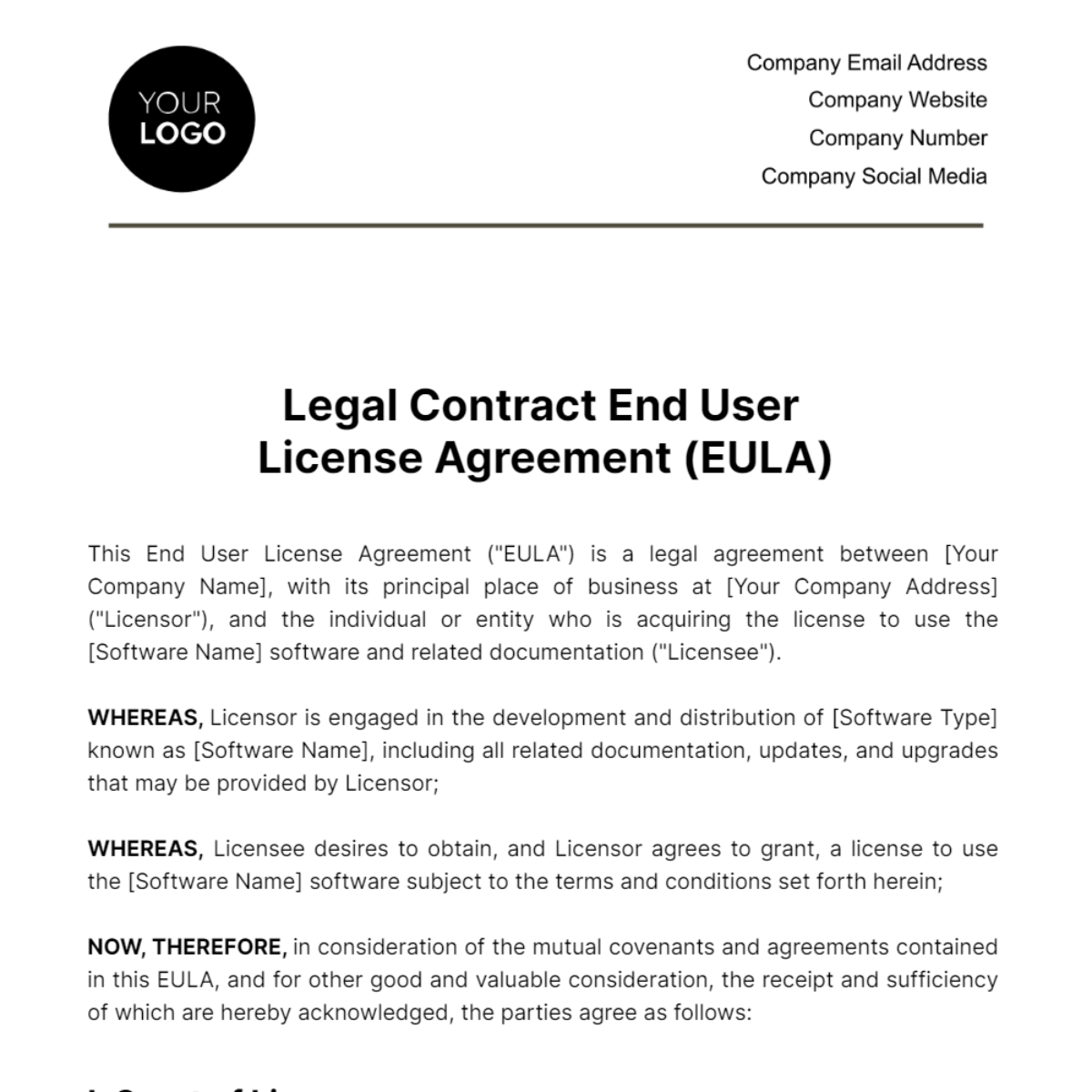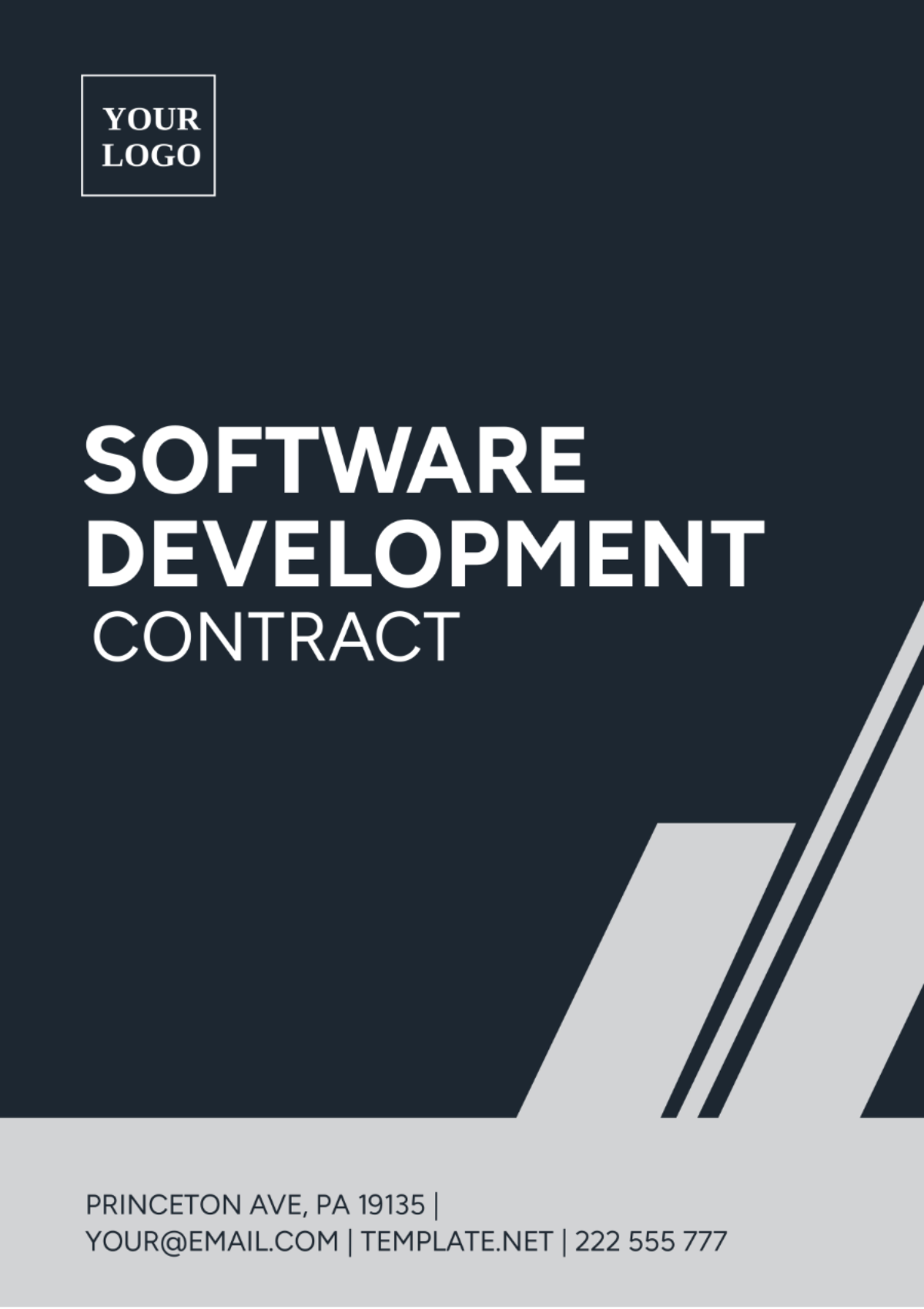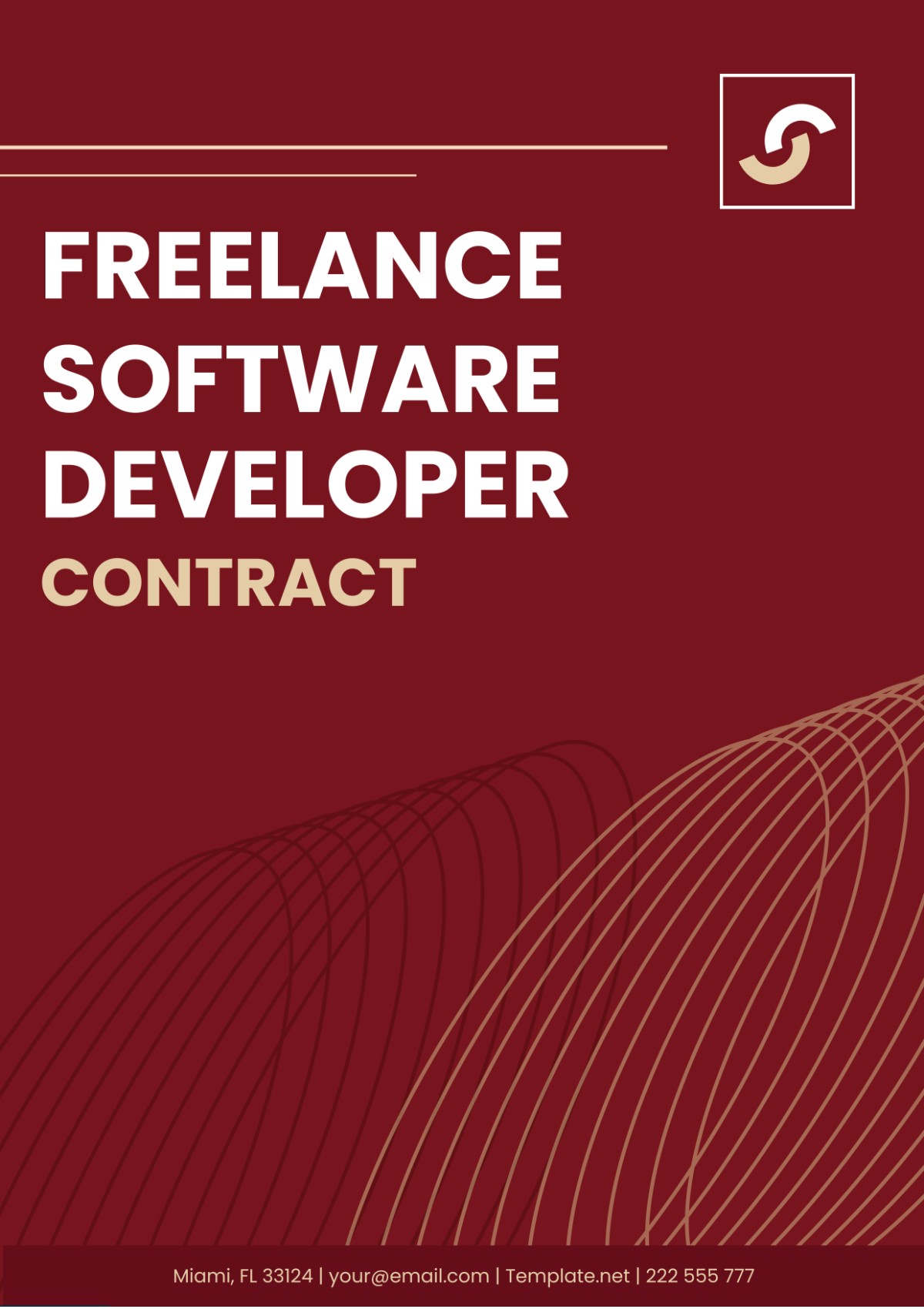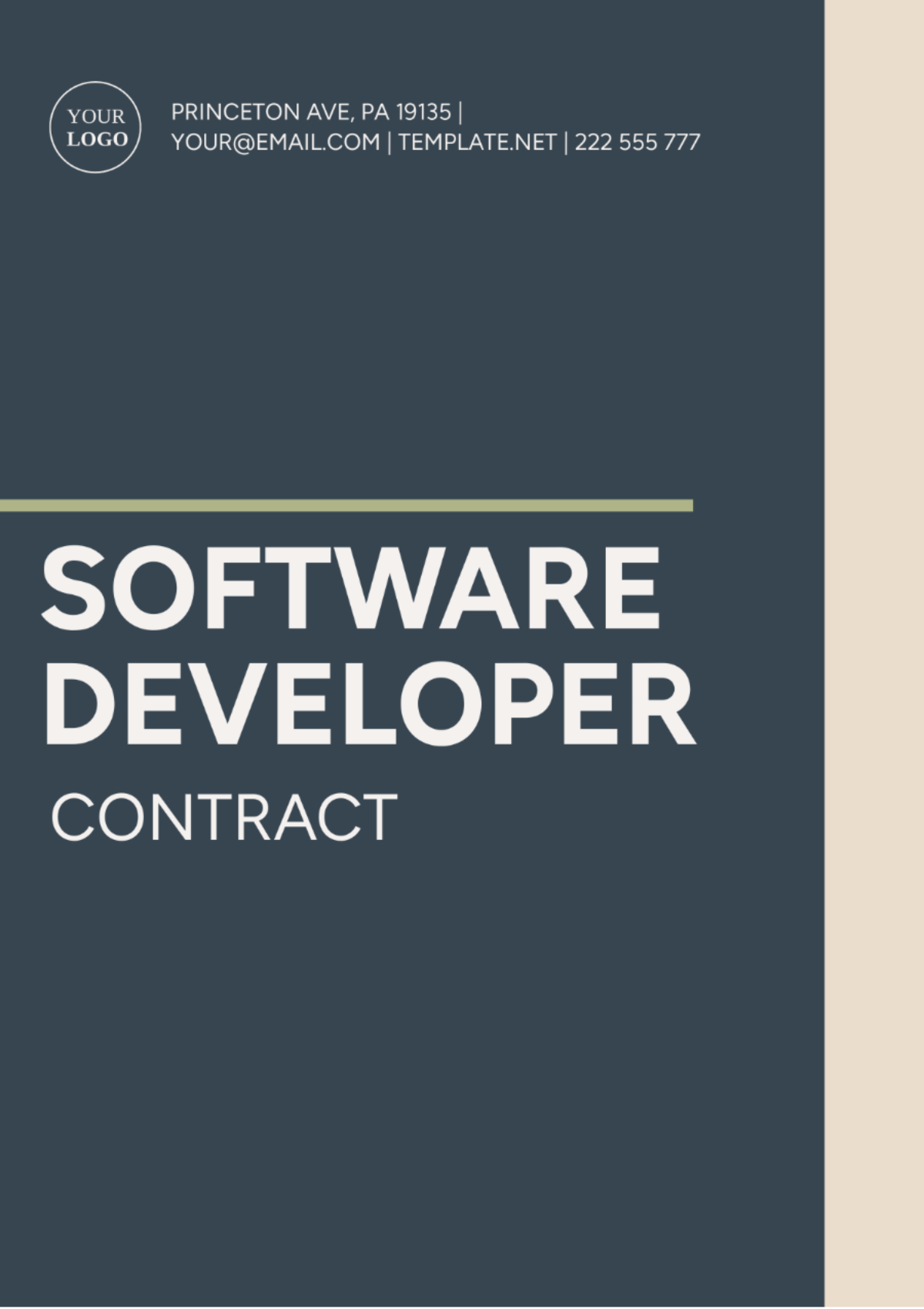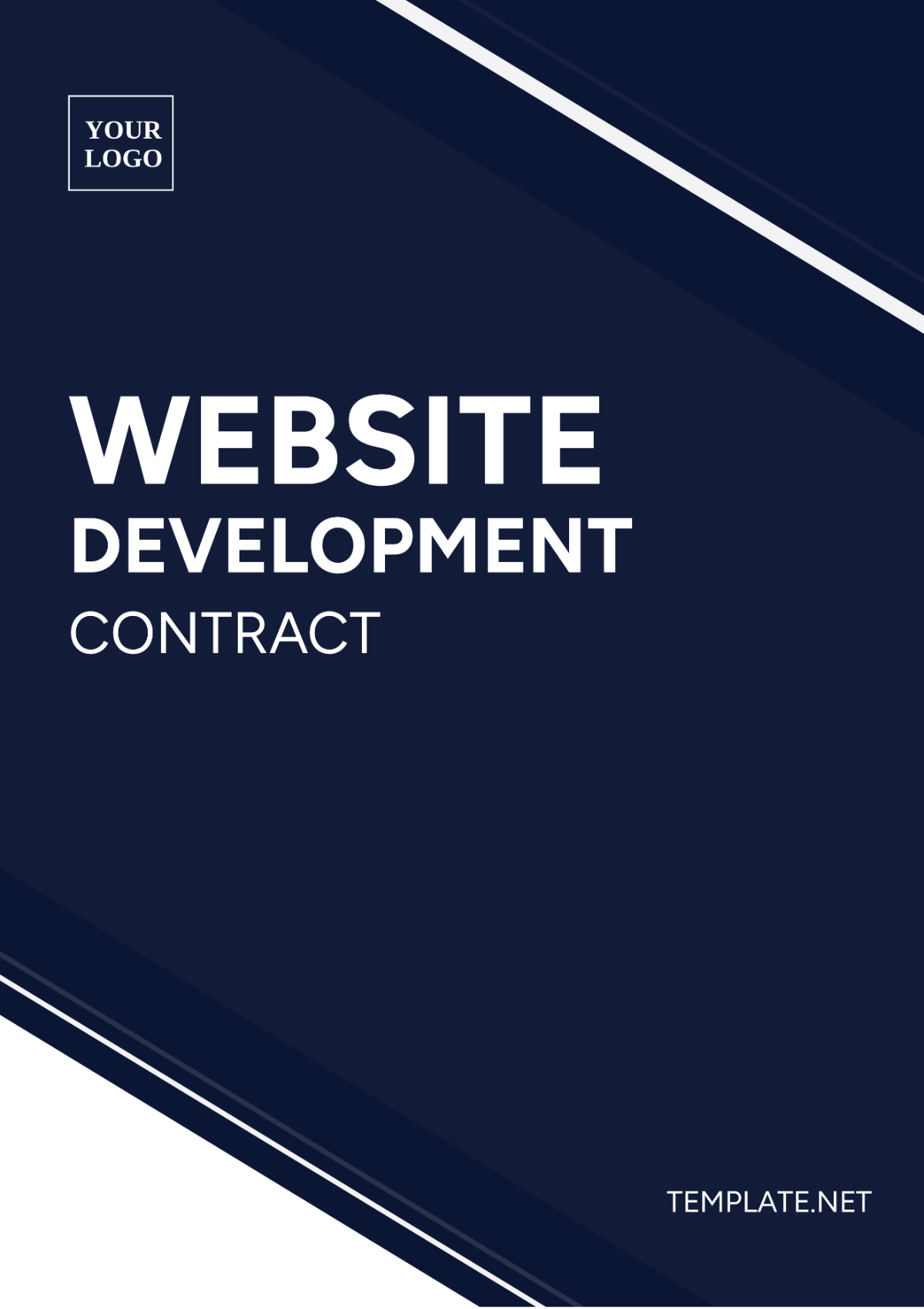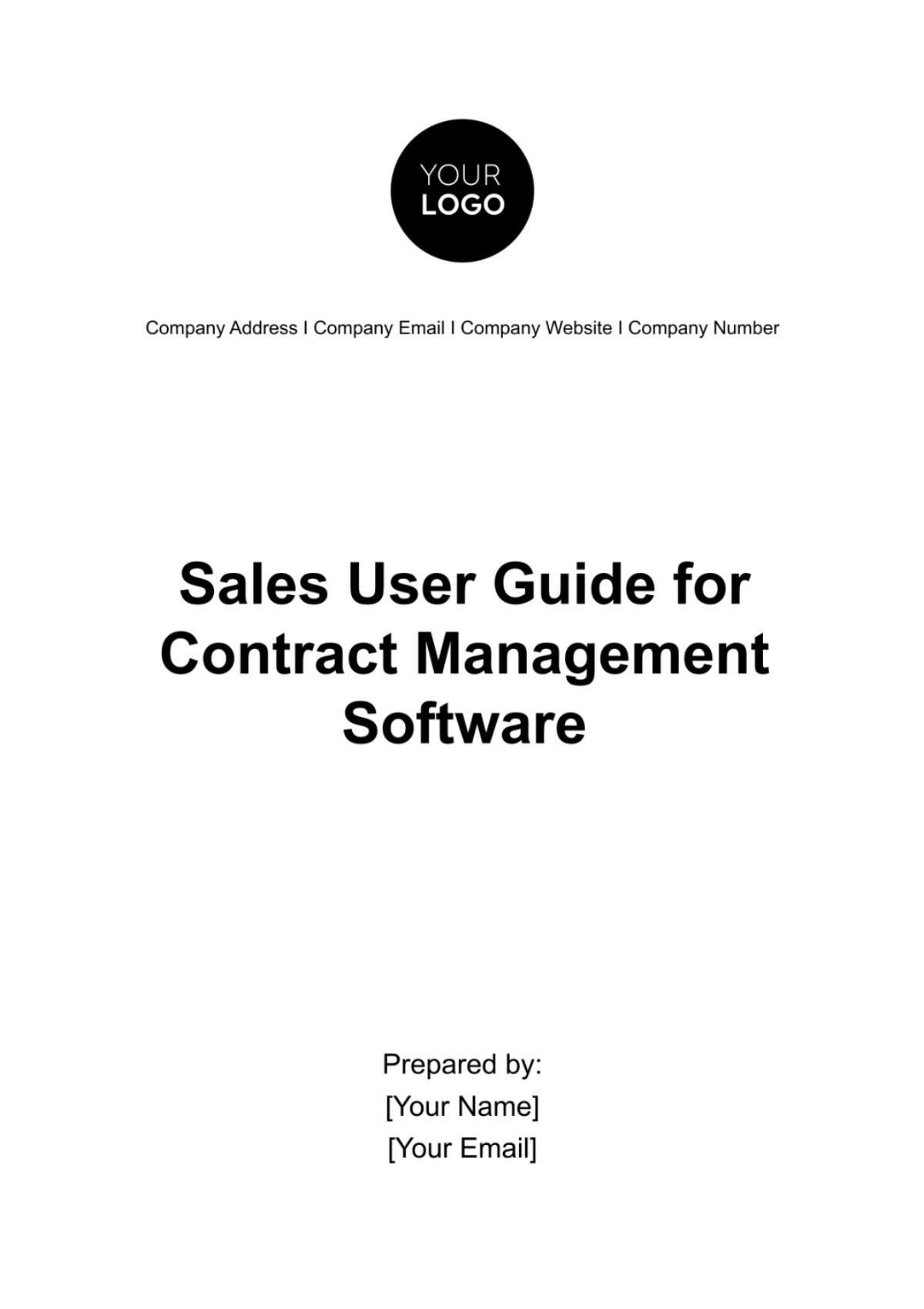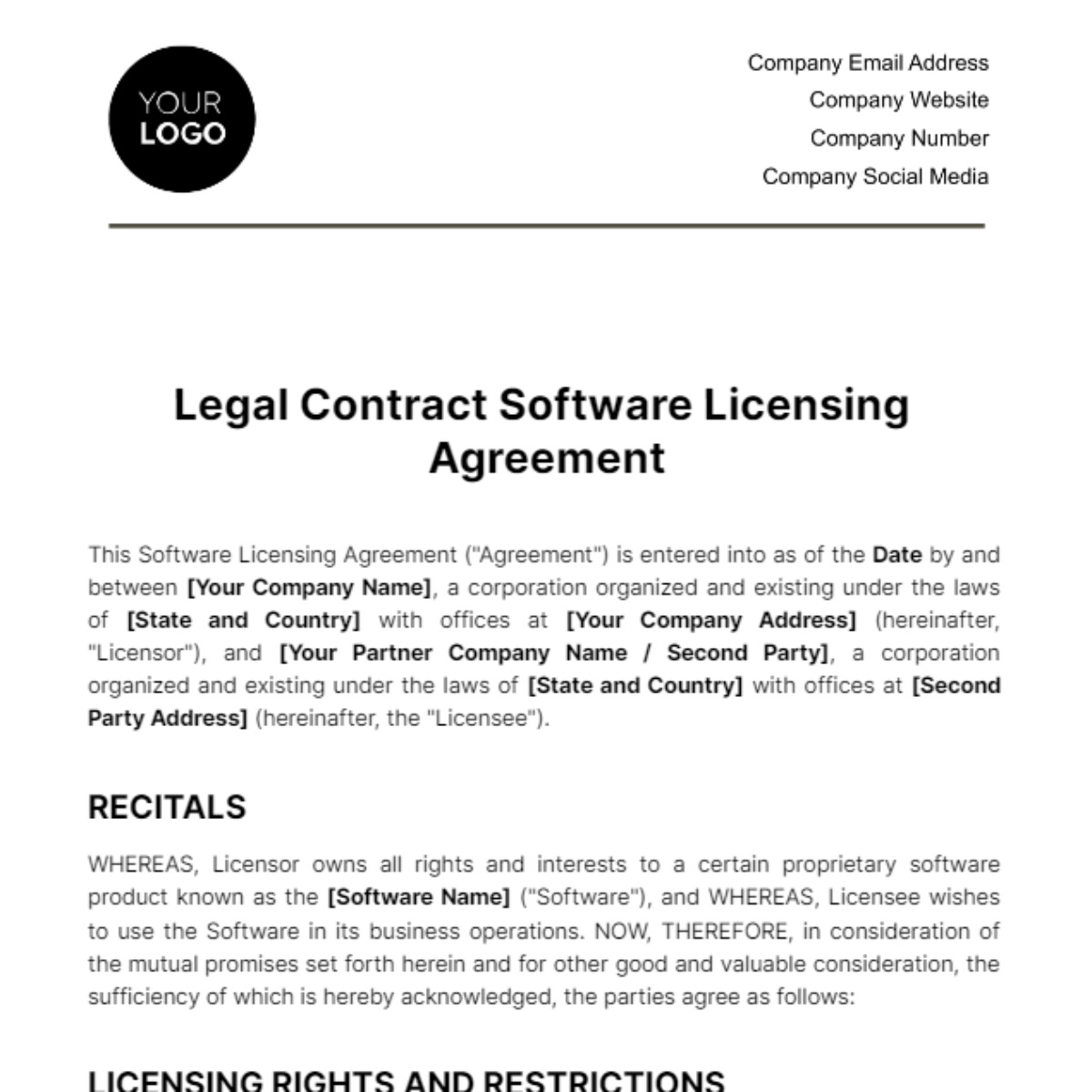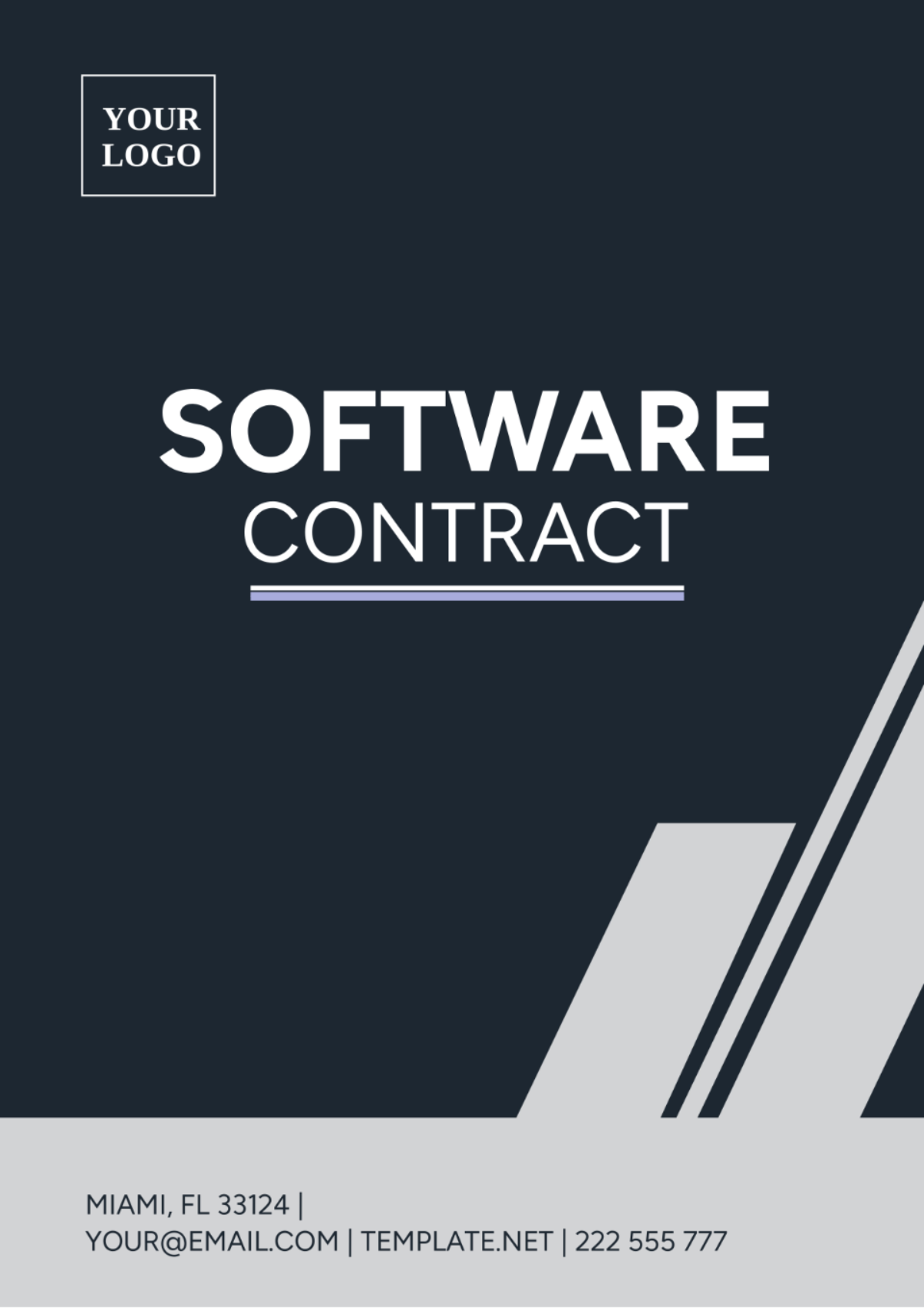Spa Development Contract
I. The Parties
This Spa Development Contract ("Contract") is made and entered into on [Month Day, Year] ("Effective Date") by and between [Your Company Name], hereinafter referred to as the ("Owner") with a primary place of business at [Your Company Address] and [Developer's Name] hereinafter referred to as the ("Developer") with a primary place of business at [Developer's Address] collectively referred to as the ("Parties").
WHEREAS, the Owner desires to develop a spa facility located at [Your Company Address];
WHEREAS, the Developer is in the business of designing, constructing, and developing facilities;
WHEREAS, the Parties wish to set forth their respective rights and obligations in connection with the development of the spa facility;
NOW THEREFORE, in consideration of the mutual covenants and promises herein, the Parties agree as follows:
II. Scope of Work
A. Developer Responsibilities
Design, Construction, and Development Services: The Developer shall provide comprehensive services for the design, construction, and development of the spa facility. This includes architectural planning, interior design, and engineering aspects. All work performed by the Developer must adhere to industry standards, local building codes, and regulations.
Qualified Personnel: The Developer shall employ qualified professionals, including architects, engineers, project managers, and skilled labor, to execute the project. These personnel shall have the necessary expertise to ensure the successful completion of the spa facility.
Scope Approval: Any proposed changes or modifications to the original scope of work must be submitted in writing to the Owner for approval. The Developer shall not proceed with any alterations without obtaining written consent from the Owner.
Progress Reports: The Developer shall provide regular progress reports to the Owner. These reports should include details on milestones achieved, work completed, and any challenges encountered. Transparency and effective communication are essential throughout the project.
B. Owner Responsibilities
Property Access and Information: The Owner shall grant the Developer access to the property where the spa facility will be developed. All necessary information related to the site (e.g., land surveys, soil reports, utility connections) shall be provided promptly to facilitate the project.
Design Plan Approval: The Owner shall review and approve the design plans submitted by the Developer. This includes architectural drawings, floor plans, elevations, and any other relevant documentation. Timely approval ensures smooth progress during the construction phase.
Payment Terms: The Owner agrees to make payments to the Developer as outlined in the Payment Terms section of the contract. Clear payment milestones should be established, tied to project deliverables and progress.
Prompt Communication: Any modifications or adjustments requested by the Owner must be communicated promptly and in writing. Effective collaboration between the Owner and Developer is crucial for project success.
III. Timeline
A. Project Schedule
Project Commencement: The Project shall officially commence on [Month Day, Year]. Both the Owner and the Developer shall be bound by this start date.
Estimated Completion Date: The anticipated completion date for the Project is [Month Day, Year]. This target date serves as a guideline for project planning and execution.
Adherence to Schedule: Both Parties shall diligently adhere to the agreed-upon project schedule. Unless unforeseen circumstances arise, timely progress is essential.
Penalties for Delays: Delays not attributable to force majeure or Owner-induced changes may incur penalties.
B. Milestones
Design Phase Completion: The design phase shall be completed by [Month Day, Year]. During this phase, architectural plans, interior layouts, and other design elements will be finalized.
Construction Phase Completion: The construction phase is targeted for completion by [Month Day, Year]. All building activities, including foundation work, structural framing, and installations, should be finished by this date.
Final Inspection and Approval: The final inspection and approval process will occur on [Month Day, Year]. At this stage, the spa facility will undergo thorough assessment to ensure compliance with quality standards and safety regulations.
IV. Payment Terms
A. Payment Amount and Schedule
Payment Amount: The total Payment Amount for the spa development project is [$1,200,000]. This amount covers all services provided by the Developer, including design, construction, and development.
Advance Payment: Upon signing this Contract, the Owner shall make an advance payment of [20]% of the total Payment Amount. This initial payment ensures the project’s initiation and commitment from both Parties.
Design Phase Payment: Upon completion of the Design Phase, the Owner shall release [30]% of the total Payment Amount. The Design Phase includes finalizing architectural plans, interior layouts, and other design-related tasks.
Construction Phase Payment: [30]% of the total Payment Amount will be due upon successful completion of the Construction Phase. The Construction Phase encompasses all building activities, from foundation work to finishing touches.
Final Approval Payment: The remaining [20]% of the total Payment Amount becomes due upon final approval and handover of the completed spa facility. This payment signifies the successful completion of the project and the transfer of ownership to the Owner.
B. Late Payments
Late Fee: If payments are delayed beyond [30] days from the due date, a late fee of [5]% of the outstanding amount will be charged.
Non-Payment Consequences: Failure to settle the account after [60] days may result in the suspension of work until payment is received. The Developer reserves the right to terminate the Contract if the Owner continues to default on payments.
V. Warranties
A. Developer Warranties
Quality of Materials and Workmanship: The Developer warrants that all materials used in the spa facility’s construction shall be of high quality. Workmanship, including installation and craftsmanship, will meet industry standards and best practices.
One-Year Warranty: The Developer shall provide a warranty period of [1] year for the completed spa facility. This warranty covers any defects arising from poor workmanship or material deficiencies during this period. Repairs or replacements necessary due to such defects will be addressed by the Developer at no additional cost to the Owner.
B. Owner Warranties
Legal Title to Property: The Owner warrants that it holds legal title to the property where the spa facility is to be developed. This ensures that the Developer has the right to construct and develop on the specified site.
Timely Payment Obligations: The Owner agrees to pay all fees and costs promptly as stipulated in the Contract. Adherence to payment schedules is crucial for the smooth progress of the project.
Cooperation and Design Approval: The Owner assures cooperation throughout the project, including timely responses to queries and requests. Approval of submitted designs and plans should be provided promptly to avoid delays.
VI. Termination
A. Termination by Owner
Grounds for Termination: The Owner reserves the right to terminate the Contract if the Developer fails to meet the stipulated milestones. Such termination may occur due to significant delays, substandard work, or other breaches of contractual obligations.
Notice Requirement: Written notice of termination must be provided by the Owner at least [30] days prior to the intended termination date. This notice period allows both Parties to prepare for the transition.
Payment for Work Completed: All work completed by the Developer up to the termination date shall be compensated by the Owner. Payment will be based on the agreed-upon terms and the progress achieved until that point.
B. Termination by Developer
Cause for Termination: The Developer has the right to terminate the Contract if the Owner fails to make payments according to the agreed schedule. Non-payment or persistent delays may trigger termination by the Developer.
Notice Period: Written notice of termination must be given by the Developer at least [30] days before the intended termination date. This notice period allows for proper communication and resolution attempts.
Ownership of Completed Work: All work completed by the Developer up to the termination date will remain the property of the Owner. However, this provision is contingent upon the Owner settling all outstanding payments.
VII. Dispute Resolution
A. Mediation
Attempted Resolution: Both Parties agree to first attempt to resolve any disagreement or dispute arising from this Contract through mediation. Mediation provides an opportunity for open communication and negotiation.
Cost Sharing: The cost of mediation will be shared equally by the Parties. This ensures fairness and encourages a cooperative approach to resolving conflicts.
B. Arbitration
Alternative Resolution Method: Should mediation fail to yield a satisfactory resolution, the dispute will be escalated to arbitration. Arbitration provides an alternative to court litigation.
Arbitration Venue: The arbitration proceedings will take place in [State Name]. The chosen venue should be convenient for both Parties.
Rules and Procedures: The arbitration process will adhere to the rules and procedures of the [American Arbitration Association]. These guidelines ensure a fair and impartial resolution.
Final Decision: The arbitrator’s decision will be final and binding on both Parties. It serves as the conclusive resolution to the dispute.
VIII. General Provisions
A. Entire Agreement
Comprehensive Understanding: This Contract serves as the complete understanding between the Parties regarding the development of the spa facility. It supersedes all prior agreements, negotiations, and discussions related to the project. Both the Owner and the Developer acknowledge that this Contract represents their entire understanding of the terms and conditions governing the project.
Exclusivity: No other verbal or written agreements, promises, or understandings outside of this Contract shall be considered binding. The Parties agree that any additional terms or modifications must be explicitly documented within this Contract.
Clarity and Certainty: By establishing this comprehensive agreement, both Parties can proceed with confidence, knowing their respective rights and obligations. The clarity provided by this Contract minimizes misunderstandings and promotes a smooth development process.
B. Amendments
Formal Process: Any amendments, modifications, or changes to this Contract must be made in writing. Both the Owner and the Developer must sign the revised agreement to validate the proposed changes. Verbal agreements or informal discussions will not alter the terms of this Contract.
Transparency and Consensus: Formalizing amendments ensures transparency and prevents disputes arising from differing interpretations. Both Parties should engage in open communication to reach consensus on any necessary modifications.
Record Keeping: Properly documented amendments serve as a historical record of the Contract’s evolution. In case of future disputes, these records provide evidence of the Parties’ intentions and agreements.
C. Governing Law
Legal Framework: This Contract shall be governed by and construed in accordance with the laws of the state in which the primary place of business of the Owner is located. The chosen jurisdiction provides a legal framework for interpreting and enforcing the Contract.
Uniform Application: By specifying the governing law, both Parties agree to abide by the regulations and precedents of that jurisdiction. This consistency ensures fair treatment and predictability in case of any legal proceedings related to the Contract.
Conflict Resolution: The selected governing law also guides the resolution of any disputes that may arise during the project. Courts within the specified jurisdiction will have authority over any legal matters related to this Contract.
IX. Notices
A. Written Communication
Formal Requirement: All notices pertaining to this Contract must be made in writing. Verbal communication or informal messages will not suffice for official notifications.
Addresses of the Parties: Notices should be sent to the respective addresses of the Parties as specified in the Contract. The accuracy of the addresses is crucial to ensure timely and effective communication.
Delivery Methods: Notices can be delivered via certified mail, courier service, or email. The chosen method should provide proof of delivery and allow for tracking.
B. Timelines for Notices
Prompt Delivery: Notices should be dispatched promptly upon the occurrence of any event requiring notification. Delays in providing notices may affect the rights and obligations of the Parties.
Business Days: Notices should be sent during regular business days (excluding weekends and holidays). The Parties should consider the recipient’s working hours and time zones.
Receipt Confirmation: The sender should request confirmation of receipt for important notices. This confirmation ensures that the notice has been duly received by the intended recipient.
C. Legal Consequences
Notice as Trigger: Many contractual actions, such as termination or dispute resolution, are triggered by the receipt of specific notices.
Waiver and Estoppel: Failure to provide timely notices may result in waiver or estoppel. Parties should be aware of the legal implications of not adhering to notice requirements.
Record Keeping: Both Parties should maintain records of sent and received notices. These records serve as evidence in case of disputes related to notice compliance.
X. Confidentiality
A. Confidential Information
Scope of Confidentiality: The Parties agree to keep all information and documents related to the development of the spa facility confidential. This includes any proprietary data, trade secrets, architectural plans, financial details, and other sensitive materials.
Third-Party Disclosure Prohibition: Neither Party shall disclose any such confidential information to third parties without prior written consent from the other Party. This provision ensures that sensitive project details remain protected.
Exceptions: Exceptions to confidentiality may arise if required by law or pursuant to legal, judicial, or administrative proceedings. However, such disclosures should be made only after careful consideration and adherence to legal requirements.
B. Exclusions
Publicly Available Information: Confidentiality does not apply to information that is already publicly available. Materials accessible through public channels or widely disseminated sources are exempt from this provision.
Legal and Administrative Disclosures: Information disclosed as part of legal proceedings or administrative requirements is not subject to confidentiality. Compliance with legal obligations takes precedence over confidentiality agreements.
Balancing Interests: While maintaining confidentiality, both Parties should balance the need for privacy with legal and practical considerations. Transparency and compliance with applicable laws are essential even within the bounds of confidentiality.
XI. Signatures
IN WITNESS WHEREOF, the Parties hereto have executed this Contract as of the Effective Date.
Owner

[Authorized Representative Name]
[Your Company Name]
Date: [Month Day, Year]
Developer

[Authorized Representative Name]
[Developer's Name]
Date: [Month Day, Year]
